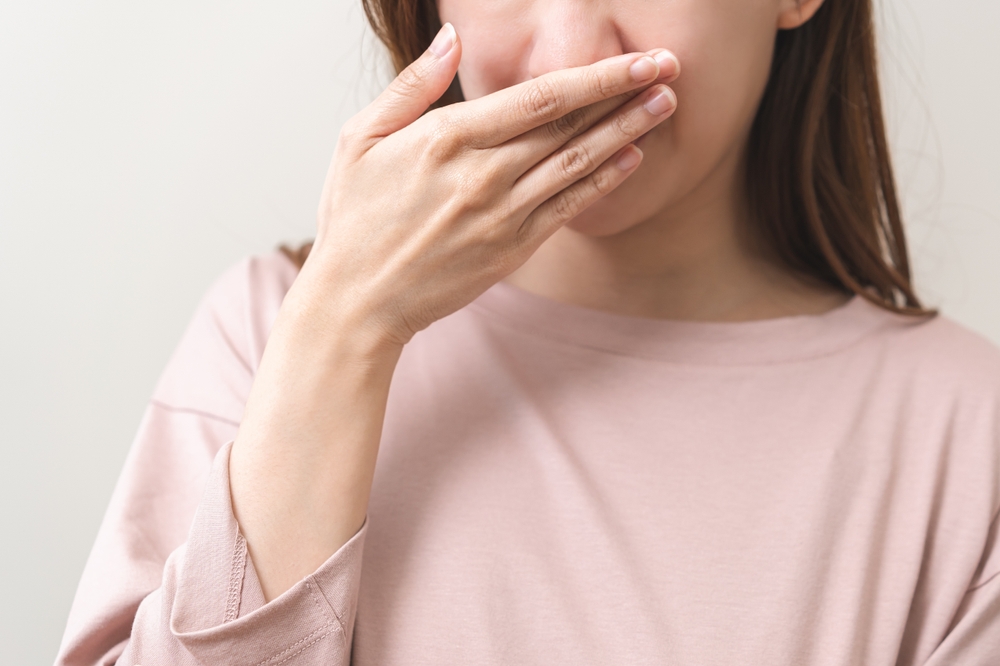Once a treatment people kept to themselves, veneers are now seen as a status symbol and have become a widely sought-after cosmetic procedure.
Veneers are now more affordable compared to previous years when they were reserved for Hollywood stars or used to treat broken or chipped teeth.
Whilst their popularity has increased, so has the occurrence of ‘veneer breath’. Dr. Smita Mehra, BDS MFGDPRCS, Principal Dentist at The Neem Tree Dental Practice, has weighed in on this term, explaining its causes and how it can be treated.
What exactly is ‘veneer breath’?
Veneer breath refers to bad breath that occurs due to veneers that are either poorly fitted or the result of poor hygiene. This issue can also affect those who have had caps fitted.
There are several other factors that can cause veneer breath, including:
- Food build-up: If your veneers have not been bonded properly, food and bacteria can become trapped in hard-to-reach areas, ultimately causing a foul odour.
- Poor oral hygiene: Plaque and tartar build-up can cause bad breath, even with veneers, so it is vital to maintain good oral health.
- Gum disease (gingivitis or periodontitis): Inflammation and infection can lead to a foul smell.
- Diet and habits: Smoking, coffee, and certain foods can contribute to bad breath, making oral hygiene even more important if you carry out these habits.

How can I treat veneer breath?
Maintain oral hygiene
Ensuring you have an excellent hygiene routine is crucial. Not only will it prevent the risk of veneer breath, but it will also reduce the risk of cavities and other oral diseases.
- Floss daily to remove bits of food and prevent plaque build-up around the teeth.
- Always brush after flossing, twice a day, using fluoride toothpaste.
- Use an alcohol-free antibacterial mouthwash to kill odour-causing bacteria.
See your dentist regularly
It is vital to book regular check-ups with your dentist to ensure any cavities or other oral issues are caught before they escalate.
Your dentist can also check on your veneers to ensure they are properly fitted and that the bonding remains secure. They may even provide a thorough cleaning to remove any build-up your brush may miss.
Drink more water
This may seem basic, but water helps neutralise acids in the mouth that can cause bacteria and foul smells.
It also prevents dry mouth and promotes saliva production, both of which help maintain fresh breath.
If your bad breath persists despite proper care, consult your dentist, as it may be due to an underlying dental issue or ill-fitting veneers.
It is vital to consult your dentist if you are considering veneers—any dental work should only be carried out by professionals.